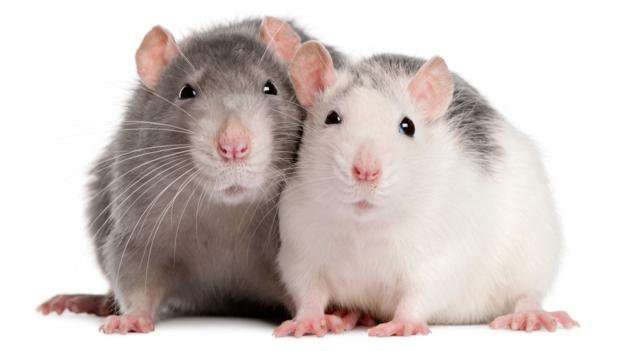Saving another person from a life-or-death situation is something many of us do instinctively.
But it's not unique to humans. Many primates will also help each other out. They are our closest relatives, so it's likely that our ape-like ancestors behaved in similar ways.
In other words, our willingness to save others is an ancient trait, which modern humans have inherited.
This trait may go back a surprisingly long way. Rodents such as rats are much more distantly related to us, and our common ancestor with them must have lived millions of years ago. Yet according to a new experiment, rats will save their friends from drowning.
When one was soaked in water, another rat quickly learned how to operate a lever that would allow it to escape to a safe and dry area.
They did so even in the presence of a tempting chocolate treat, foregoing the lever that would release the food in favour of the one that would save the drowning rat.
The rats therefore engage in helpful "prosocial behaviour" even if there was no apparent reward. Saving a distressed rat was valuable to them.
Past experience played a role too. If the saviour rat had had a similar near-death experience, it was much quicker to help.
But when there was nobody to save, or the distressed rat was replaced with an inanimate object, the rats no longer pressed the lever.
Published in the journal Animal Cognition, the research suggests that rats may have empathy, and that they recognise the suffering of others and want to alleviate it.
Understanding that rats have empathy could lead the way for further studies giving insight into the neural basis of social behaviour.
"Empathy is one of the important abilities for our social life," said lead author of the study Nobuya Sato of Kwansei Gakuin University in Japan.
If rats really do have empathy, we could start to find out how it works at a neural level.
That would help us understand the evolution of social behaviour, as well as psychological conditions where individuals lack empathy.
Empathy is usually seperated into emotional empathy and cognitive empathy, says Sato. The new study specifically suggests rats feel emotional empathy: the ability to share the emotional states of other individuals.

neonchinchilla on September 11st, 2019 at 15:56 UTC »
I had a friend who kept rats. Apparently you have to just Tarzan through owning rats because if one dies, the other gets depressed over it and could padme itself to death so you get another to console it....then it dies and the replacement is sad...
Landlubber77 on September 11st, 2019 at 12:43 UTC »
Phil Collins standing there with chocolate all over his mouth.
hitchens1949 on September 11st, 2019 at 12:39 UTC »
That experiment is kinda fucked up